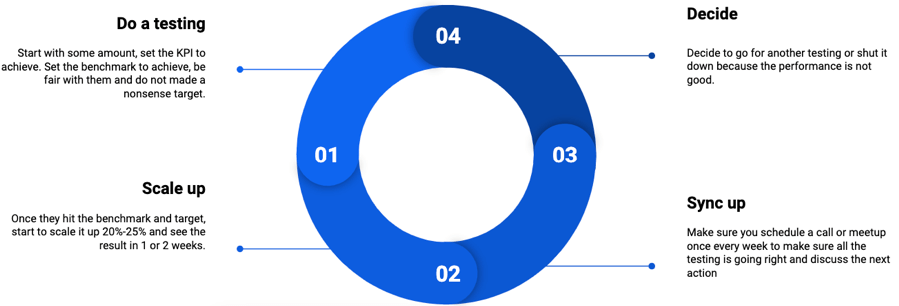
How to Build a Powerful Foundation for Scaling Your Mobile App
Kelvin started his career as a digital marketing intern for Tokobagus (now OLX Indonesia). After graduating from college, he was promoted to digital marketing specialist. He then worked at Salestock Indonesia as a digital marketing manager where he successfully drove more than 30% month over month growth. Currently, Kelvin works at Kredivo as a performance marketing lead, responsible for managing paid user acquisition channels.
Learn more from his Mobile Hero profile.
Managing a large app marketing budget is a big responsibility, especially when you’re at the stage of scaling your mobile app and investing huge sums of dollars into user acquisition. Often times, it can be difficult to scale campaign performance due to a variety of factors.
In this blog, I will share my experience on how we successfully scaled Kredivo, a finance app, by 4x4x year over year, and offer suggestions on how to apply these learnings to scaling your own app business.
1. Focus on your north star metric
Every mobile app campaign has a defining metric that captures the core value of an app. This typically differs by industry and business model. For Kredivo, our north star metric is an activated user who is eligible to get credit access or a loan.
The north star metric not only delivers value to your customer but also determines how you approach them. Whether it is a branding effort or a paid performance campaign, our marketing team focuses on delivering against this key metric.
Keep in mind that we are not concerned with CPI, CPC, or CPM. Instead, we prioritize the Cost-Per-User that we acquire.
2. Understand your user journey
To achieve your KPIs, it’s important to understand the user journey and the benchmarks of each step along the user acquisition funnel.

Monitoring the movement of conversion rates on a daily basis helps us identify more easily when something looks wrong. For example, if we see a drop in conversion rates from one step to the next, we will investigate the reason and come up with a plan to address it.
3. Diversify your channels
Simplicity is key when starting a new mobile marketing campaign. I strongly recommend working with only two or three channels initially. If you start scaling up additional channels too soon, it can become challenging to deliver consistent performance against your KPIs. In my experience, it is quite common to reach a stage where the acquisition costs will increase after scaling spend to a certain level, requiring time to further test and optimize the campaign.
Once you find yourself hitting your goals on those first two or three channels, adding new channels can really help you start to scale. By expanding, you can reach new users and avoid saturating the same users with your ads. It is important to recognize that every channel is different, with different users, behaviors and messages that will resonate.
Diversifying your channels will allow you to widen your range to potential new users while also insulating you from channels that suddenly stop performing.
4. Develop a framework to find the right acquisition partners
While it is great to have several partners that can help scale up performance, it is also necessary to work with the right partners. As a marketer, I am frequently contacted by new DSPs, agencies, and mobile acquisition partners. How can we tell who will be the most impactful?
Maintaining a mindset of working and winning together is an excellent practice. Be fair and transparent with all of the partners in terms of your KPIs, business processes, user journeys and key data points that can help them optimize the performance. And of course, try not to be lured by the offer of cheaper installs. Below is a framework that we use for onboarding a new partner:

While this framework works well for us, I would suggest crafting your own framework that works best for your business. And be consistent when onboarding new partners to give them all a chance of success.